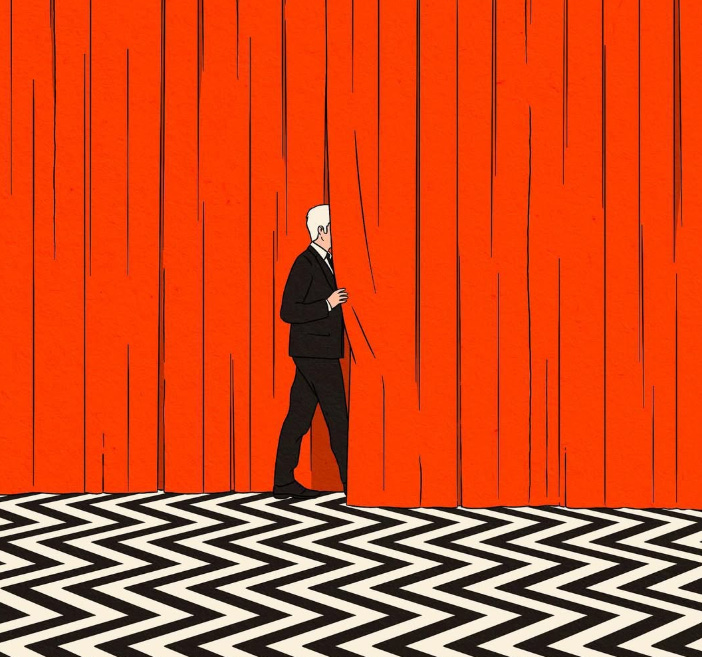
Hi,
It’s hard to articulate how much David Lynch, a man I did not know and had never met, meant to me, and no other celebrity or cultural figure’s death has impacted me quite like his.
Through Twin Peaks and his films he had a profound effect on how I engage with art. I‘m so grateful that he was so willing share his time with the world. I’ve spent countless hours watching his late-career social media content, interviews and behind the scenes videos, where his humour and gold-hearted nature is astoundingly evident.
So, this week’s letter is about David Lynch’s impact on me, and as I suspect many readers may be unaware of Lynch or haven’t watched his films, I’ve written a beginner’s guide to get you started.
I’ve made a playlist of music from his scores and soundtracks, plus other music he co-wrote/co-produced with collaborator Angelo Badalamenti - Apple Music & Spotify.
If you missed any of my previous letters you can find them in the archive here.
Please like & subscribe, share with anyone who would enjoy, and let me know what you think in the comments below.
Much love, Odhran x
Lynch & I
Empathy in visual storytelling
Through his work, David Lynch taught (and continues to teach) me how to watch and engage with film, and art more broadly. He accomplishes this primarily in two ways. His surreal and non-linear storytelling encourages viewers to consider not just what a scene means in the context of the the plot, but what the filmmaker is trying to communicate to the viewer. Secondly, his work emphasises the importance of not only what a film makes you think, but how it makes you feel.
A view I hear often is that every scene in a film must drive the plot forward - that the progress of the narrative tale is all that matters, and any scene that doesn’t directly serve that purpose, whether abstraction, scenic shots or love scenes, is superfluous. Lynch would consider this idea antithetical to visual storytelling - a film shouldn’t be just a straight path from A to B through the script, it should be a medium through which a filmmaker conveys a feeling or idea to the audience.
Something which sets Lynch apart from his fellow directors is that at his core, he’s an empathetic man to the nth degree, and this flows into his filmmaking style. If a character is frightened by a room full of scary people, a more literal filmmaker will simply have the actor look or sound frightened to communicate that - perhaps scaring the audience with tension or a jump-scare - something the audience would expect from such a scene. For Lynch this single-dimension approach is insufficient; he wants you to empathise with the character on a deeper level, to feel what they feel in that moment. He seeks an audience experience that is not just visual, but visceral and emotional, and he achieves this by weaving otherworldly surrealism into the scene.
So whilst the Lynch character will still be frightened by the room of scary people, how those scary people behave or sound will be out of step with what the audience expects. This brings an extra dimension to watching his films - the audience is still frightened by the scene’s basic elements, but the unexpected weirdness has the additional impact of shocking or disturbing the audience, so the audience has a multi-faceted experience closer to that felt by the character.
The surrealist aspects often won’t immediately make sense in the context of the plot (although often do have some deeper narrative meaning) as Lynch doesn’t feel bound by such restrictions. His goal is not to craft a scene that fits perfectly within a typical plot structure, but to use the medium of film to communicate a feeling or an idea directly to the audience. His films are full of scenes that do this, and it occurs in the lighter moments too - like in the warm nostalgic Americana of Twin Peaks’ Double R Diner. This ability to reach beyond the screen elevates Lynch amongst his peers.
Introducing the avant-garde to Hollywood
Like many people, I struggled with any form of abstract art - I “didn’t get it” or thought it was pretentious. However trying (and often failing) to understand what Lynch is saying in the surreal aspects of his films, whilst being conscious of his style and level of intent, encouraged me to engage with films in a more purposeful and open-minded way. I’m not too proud to admit that a fair part of that engagement came in the form of watching YouTube essays by film school grads setting out their theories, but I think that process helped me apply more critical and abstract thought to art more broadly.
I think the procedural way in which we study literature in school pushes the average person away from engaging with art in this way. Teenagers loathe listening to a teacher speculate on the meaning of a line of a novel. The idea that “sometimes the curtains are just blue” is an easier path for someone to take than grappling with complex interpretation of a play.
And sure, not all creative works are made with such depth - sometimes the curtains are simply blue, and there’s nothing wrong with purely aesthetic choices. But there are artists that do put that level of care into every aspect of their work, and the curtains being blue (or in Lynch’s case, red) does mean or communicate something.
Being aware of Lynch’s creativity and unwillingness to give up final cut of his movies (the importance of which he would impress on other filmmakers at any opportunity), puts you in the right frame of mind to meaningfully engage with his work. By making you consider whether a scene is a dream sequence or reality, you naturally consider the subtler or more unusual elements of his films more closely.
Through placing me in this mindset, and by introducing avant-garde art into pop and commercial productions, Lynch opened my eyes to a world of art I’d avoided. Watching Part 8 of Twin Peaks: The Return was a watershed moment in my life - I’d never seen anything like it, never mind at prime time on Sky Atlantic.
And listen, I’m certainly not some art aficionado, nor am I even good at film analysis - I rely heavily on reading/watching people cleverer than me - but it’s a journey and one I’m on because of Lynch, and to quote him “keep your eye on the donut, and not the hole”.
Legacy Directory
Few artists are so totemic they have a word (“Lynchian”) describing their work in Oxford English Dictionary, but Lynch is a singularly important figure in the modern age. I’ve linked to some pieces you can read/watch to learn more about his impact:
Actors - Kyle MacLachlan: How David Lynch Invented Me (New York Times) and Naomi Watts, Laura Dern & Patricia Arquette discuss Lynch in 2015.
Music & Sound - Lynch’s Impact on Electronic Music (Resident Advisor), ‘Music is a magic’: how David Lynch used song and sound to transcend reality (The Guardian) and A Closer Listen who has compiled various pieces of writing about his use of sound.
TV - David Lynch’s Impact on Television Is Like a Shared Dream We Dare Not Forget (IndieWire).
Filmmaking - How David Lynch Became an Icon of Cinema (The New Yorker).
Fashion - Nobody Understood the Power of Customer like David Lynch (Vogue) and Unpacking the iconic director’s influence on fashion (Dazed).
Meditation - David Lynch: Heaven is a place on earth (The New Statesman).
Painting - Avant-Garde Filmmaker David Lynch Leaves Behind a Dual Legacy (Observer).
Trans Rights - “Fix Your Hearts or Die”: David Lynch’s Work Has Always Been Deeply, Powerfully Queer (them).
Photography - David Lynch’s Enduring Impact on Photography (PetaPixel).
Advertising - David Lynch’s hauntingly beautiful commercials (The Drum).
Lynch’s Filmography - A Beginner’s Guide
There’s no golden rule on how to approach a great director’s filmography, and chronologically may be the best way to understand their journey, but (in classic Lynch fashion) I think his should be watched in a non-linear order. So I’ve split his filmography into bite-size parts to give you a place to start. I’ve also created this list on Letterboxd.
Frustratingly few of these are available on major streaming platforms in the UK at time of writing (though Twin Peaks is on Paramount+). They usually are, so I presume negotiations are ongoing in light of his death. I expect they’ll be bunched together as a package on a service soon, so keep an eye out. Also check out your local independent cinema for screenings, it can take some time for cinemas to move schedules around so expect to see his films crop up in the coming months. If you’re in London the wonderful Princes Charles Cinema is showing several Lynch movies this month.
Editor’s Note 17/02/25: Updated to include various UK streaming options.
Part 1 - Lynchian 101
These first three can really be watched in any order to give you a strong grasp of who Lynch is and what to expect from his films. I think the first 2 seasons of Twin Peaks is the best starting point, particularly as the surrealism and Lynchian-ness ramps up over time, easing you into his world. But as it’s a TV show you need not finish it before watching the others in this part.
Twin Peaks Seasons 1 & 2 (1990 - 1991)
UK Streaming: Paramount+
When I started this newsletter last year I thought I would write about TV more than I have, I definitely didn’t think the only show I’d have written about by the 14th edition would be Twin Peaks, and that I’d have done so 3 times, but here we are.
FBI agent Dale Cooper (Kyle MacLachlan) travels to the small town of Twin Peaks in the pacific northwest to investigate the murder of Laura Palmer. The mystery surrounding the murder grows, as does the oddities of the town both charming and frightening, as Lynch pitches good against evil. The Twin Peaks score and soundtrack made with career-long collaborator the late Angelo Badalamenti’s score is eternal (you can listen to much of it in the playlists linked above), with its emotional swelling strings, otherworldly jazz and ethereal vocals from Julee Cruise.
Frequently a satire of police procedurals and cheesy soap operas (the most prominent TV shows prior to Twin Peaks), the show laid the groundwork for decades of prestige TV drama which would follow it - without Twin Peaks there’s no The Sopranos, The Wire or Breaking Bad etc.
The first season is perfect, but it’s worth knowing that there’s a bizarre dip in quality in the middle of season 2, due to Lynch and co-creator Mark Frost temporarily leaving the show due to creative differences with ABC. This can be off-putting on first watch, but persevere, it’s worth it for the last third of the series when Lynch and Front return (and for the subsequent movie and reboot), and I think the oddity of those episodes is part of the charm.
Blue Velvet (1986)
UK Streaming: BBC iPlayer
A precursor to Twin Peaks in tone, actors, music, setting, story and vibe, MacLachlan plays a college student who returns to his hometown and finds an amputated ear in a field. He teams up with a police detective’s daughter (Laura Dern) to undertake an investigation which takes him on a bizarre and sleazy journey. Blue Velvet launched the careers of MacLachlan, Dern and Isabella Rossellini and revitalised that of Dennis Hopper in an against-type villainous role.
Blue Velvet earned Lynch’s second Best Director nomination, and was his first success at blending surrealism into mainstream pop. It also sets out some early markers for the core themes of his work - unrelenting good against limitless evil, women in trouble and blended realities. There’s humour and horror in equal measure, and Blue Velvet gives a good flavour of what to expect from his subsequent works.
The Elephant Man (1980)
UK Streaming: BBC iPlayer
Possibly the only David Lynch film your parents have seen, Lynch’s biographical film about Joseph Merrick, a severely deformed man who was exhibited in Victorian freak shows. It stars a legendary trio of Anthony Hopkins, John Hurt and Anne Bancroft, earned 8 Academy Award nominations (including Best Picture, Best Director and Best Actor), and led directly to the introduction of the Academy Award for Best Makeup and Hairstyling the following year.
The Elephant Man is a touching emotional drama that brought me to tears multiple times. It contains little substantive surrealism or absurdity, and is arguably Lynch’s most accessible work. In that sense it may be logical for this to be the first Lynch film you watch, but I think the empathy that radiates from it is more impactful when you have watched some of his other works first.
Part 2 - Intermediary Lynch
Ok so you’ve gotten your head around his unusual way of storytelling, it’s time to put on your (Bob’s) big boy pants. I’m more rigid about the order of this section - you’re better to acclimatise before watching Eraserhead despite it being his debut, you need sufficient Lynchian context to fully appreciate Mulholland Drive, and the Straight Story is the perfect palate cleanser.
Eraserhead (1977)
Lynch’s first and arguably most influential film. A 90 minute surrealist horror starring Jack Nance (another Lynch frequent flier) in a hyper-industrialised world dealing with the birth an unexpected mutant baby. It’s a harrowing and incredible film, exploring themes of fear of parenthood, morality of infidelity, introspection and the intrusion of technology into our lives - the latter being particularly prescient given when it was made.
One of the most important films ever made, it influenced an untold number of filmmakers, showing them what was possible through the medium of film. The great Stanley Kubrick told Lynch it was his favourite film, and he showed it to the cast of The Shining (1980) to get them in the mood for filming.
For me the sound design stands out, and sounds revolutionary even today. Lynch and sound designer Alan Spelt spent a year layering these intrusive ambient, industrial and alien sounds onto the film. I love this Guardian quote on it being ”industrial groaning, as if filmed inside some collapsing factory of a gigantic dying organism”.
Wild at Heart (1990)
UK Streaming: Rental only.
Starring frequent flyers Dern, Rossellini and the late Harry Dean Stanton, Wild at Heart brings Dern’s mother Diane Ladd, Nicolas Cage and Willem Dafoe into the fold. One of his zanier films - a Bonnie & Clyde road movie littered with The Wizard of Oz (1939) references, featuring a ludicrous Cage doing a constant Elvis impression.
It won the Palme d’Or, Ladd received an Academy Award nomination and Tarantino ripped it off when he wrote True Romance (1993). It’s a little marmite with some thinking its tone sticks out in Lynch’s filmography, but I found it fun and think it’s a nice shift in tone and pace following Eraserhead.
Twin Peaks: Fire Walk with Me (1992)
UK Streaming: None currently.
After Twin Peaks was cancelled, Lynch & Frost secured funding for a prequel film. Fire Walk With Me is substantially darker in tone than the first two seasons. It deals with the events leading up to Laura Palmer’s death, and I think being free from the mystery of her death allowed Lynch to implement more surrealist and horror-adjacent aspects of his filmmaking into the Twin Peaks world.
There are some disconnects from the first two seasons, Kyle MacLachlan has a minor role as he didn’t want to be type-cast, and he and other actors were concerned given the dip of quality in season 2, but the addition of David Bowie makes up for it. The film was a commercial and critical bomb at release, was booed out of Cannes and almost cost Lynch his career.
When I watched it as a teenager, I was aware of its reputation and expected the worst, but it turns out that audiences and critics in the ‘90s were fucking idiots - Fire Walk With Me is a bonafide classic. I like writer Lindsay Hallam’s reasoning for the negative reaction - “Lynch does not let [the audience] off the hook – we are taken so far into Laura's experience, without any respite and with none of the humour associated with the series".
Thankfully the past 15 years or so has seen a substantial shift in perception of the film. It’s now widely regarded as a masterpiece of horror and thriller filmmaking and regularly discussed as one of the best films of the 90s.
Mulholland Drive (2001)
UK Streaming: Studio Canal (via Apple or Prime), or in your local independent cinema.
You’ve arrived at what I think is Lynch’s magnum opus, his greatest work and in the conversation for one of the greatest films ever made. It launched the career of Naomi Watts, who stars as an aspiring actress who moves to Hollywood and tries to help a woman suffering from amnesia, which throws her into a surreal world of mystery and Hollywood sleaze. A contradictory movie about how everyone in Hollywood is despicable, made by a man in love with the place.
A twisty neo-noir thriller drifting between dream sequence and reality, leaving you grasping at wispy trails of mystery that slip between your fingers. One of his most perplexing films, but I think is his best balanced film between the grounded and the surreal. There’s nothing else like Mulholland Drive, and I doubt there ever will be.
Those things I mentioned at the start of this letter - how he communicates with audiences outside of the constraints of a rigid plot structure - apply here in spades. He tricks and plays games on his characters and the audience alike, and by the ending you don’t know up from down. Equal parts unnerving and discomforting as it is sensual and enchanting, I’ll never forget my first time watching Mulholland Drive, rooted to the cinema seat as the credits rolled.
The Straight Story (1999)
UK Streaming: Channel 4
A charming true story of Alvin Straight, a man in his 70s who rides his lawnmower from Iowa to Wisconsin to visit his estranged brother who’s had a stroke. A U rated movie made for Disney, there’s (almost) no surrealism, weirdness or horrifying scenes - a relaxing movie from start to end with some real moments of incredible emotion. It was written by his long time friend and editor Mary Sweeney, who was enchanted a news article about Straight and wrote it as a love story to the American Midwest, so unusually for Lynch this couldn’t be more of a linear plot.
Richard Farnsworth’s performance whilst suffering from bone cancer adds substantial weight to the film. There’s still a few Lynchian moments scattered throughout which add to its charm. Badalamenti’s score is cosy and sounds different to his other work with Lynch. The range Lynch shows across The Straight Story, The Elephant Man, Eraserhead and Mulholland Drive encapsulates his mastery of the art form.
Part 3 - Final Boss Lynch
Lynch at the peak of his surrealist and Lynchian powers is something to behold. Only for the brave or experienced Lynch heads.
Lost Highway (1997)
UK Streaming: None currently.
An erotic-thriller murder-mystery starring Patricia Arquette, Bill Pullman, Balthazar Getty and Robert Blake in an all-timer unnerving performance. Possibly his darkest film, it came from Lynch’s obsession with the trial of OJ Simpson, and the evilness required to commit such a murder. Scored by Badalamenti, the soundtrack was produced by Nine Inch Nails’ Trent Reznor.
One of Lynch’s least linear plots, using split-realities and multiple timelines that perplexed critics and audiences on release. I was bewildered for most of my first viewing, but hooked on the mystery. There’s a YouTube explainer which I think (unlike for most of his films) gets it right, including how the film is in conversation with Oliver Stone and Tarantino, in the context of potential plagiarism - warning that video contains spoilers to all Lynch’s films.
Twin Peaks: The Return (2017)
UK Streaming: Paramount+
I have no idea how Lynch convinced Showtime to give him tens of millions of dollars to make a third series of a cancelled TV show, that ended with a commercial bomb of a prequel 25 years prior, when he hadn’t made a movie since 2006 nor made one that made money since 2001, and which takes the form of an 18 hour film split into 18 episodes, but I’m grateful.
The alternative magnum opus to Mulholland Drive, The Return ties together threads from his entire career stretching back to Eraserhead. I recommend watching Twin Peaks: The Missing Pieces (2014) (discussed below) first for useful context.
A dense and epic exploration of most of Lynch’s ever-present themes, and an encapsulation of the extremity of his filmmaking style. In a world where we’re constantly slapped in the face with cash-grabbing 80s/90s reboots, Lynch as always defies expectations, teasing you but often denying that hit of nostalgia you crave. It’s a monumental achievement in film and TV, representing something not done before or since. Lynch’s ability to still be a ground-breaking visual storyteller so late in his career, and as his final chapter, is the perfect cap on his legacy.
Inland Empire (2006)
UK Streaming: ITVX & Studio Canal (via Apple or Prime)
Listen, I literally finished watching this two days ago. I have absolutely no idea what da hell is going on in this film. This is madness, he is a madman. The first half kind of fluctuates between Lost Highway, Mulholland Drive and Ingmar Bergman’s Persona (1966) - the second half I have absolutely no idea, ask someone else.
All I can tell you is what I knew going in - he didn’t finish the screenplay before he shot the film, and it looks like complete shit because he shot the entire movie using a handheld Sony camera. I don’t know why.
Part 4 - Lynchian Completionist
Still with me? Need more?
Twin Peaks: The Missing Pieces (2014) - 90 minutes of Fire Walk With Me deleted scenes - important context for The Return. Shout out to my mate Adam who accidentally watched this instead of Fire Walk With Me, must have been massively confusing.
David Lynch: The Art Life (2016) - a fascinating documentary into his life prior to Eraserhead.
Dune (1984) - His only feature film I excluded from the guide. Starring frequent fliers alongside Patrick Stewart and bizarrely, Sting. In some ways it’s more interesting than the modern adaption, and if Denis Villeneuve had taken just a fraction of Lynch’s visual creativity, Villeneuve’s could have been the best sci-fi movies of all time. However, Lynch’s Dune is mostly awful. It was cut to ribbons by the studio, and is an incoherent mess. The experience traumatised Lynch and hardened his stance on retaining final cut.
Lucky (2017) - starring a 90-year-old Harry Dean Stanton as a man coming to terms with his impending death. Lynch features in a supporting role and the pair, close friends in the film as in life, discuss their mortality. A funny and beautiful film made more poignant by Stanton’s death the month of its release.
David Lynch Cooks Quinoa - an Inland Empire DVD extra, where David shares his Quinoa recipe either side of a dreamy monologue.
Twin Peaks ACTUALLY EXPLAINED (No, Really) - A 4.5 hour video essay setting out a sprawling theory for Twin Peaks. The guy’s comedic style can be a little grating and I don’t agree with a plenty of his conclusions, but it’s a helpful tool to get you thinking about the core themes of Twin Peaks.
The Fabelmans (2022) - Spielberg’s self-directed biopic has Lynch popping up in a cameo for his last acting role. Do not look up who he plays, the surprise was a brilliant moment for me and the 4 other people in the cinema.
David Lynch Teaches You The Art of Life - a three hour filmmaking masterclass.
Rabbits (2002) - 8 horror shorts featuring rabbit puppets. Much like Inland Empire, I don’t know what’s going. Also check out his early shorts The Alphabet (1969) and The Grandmother (1970).
Lynch/Oz (2022) - A documentary exploring the links between The Wizard of Oz (1939) and Lynch’s work.




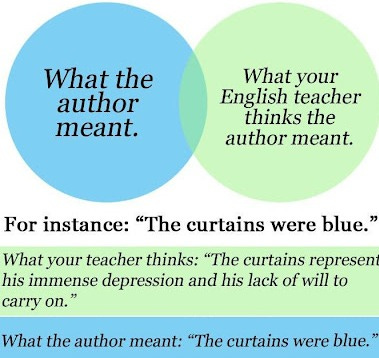
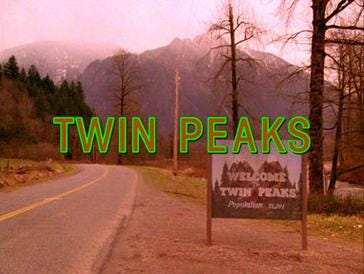
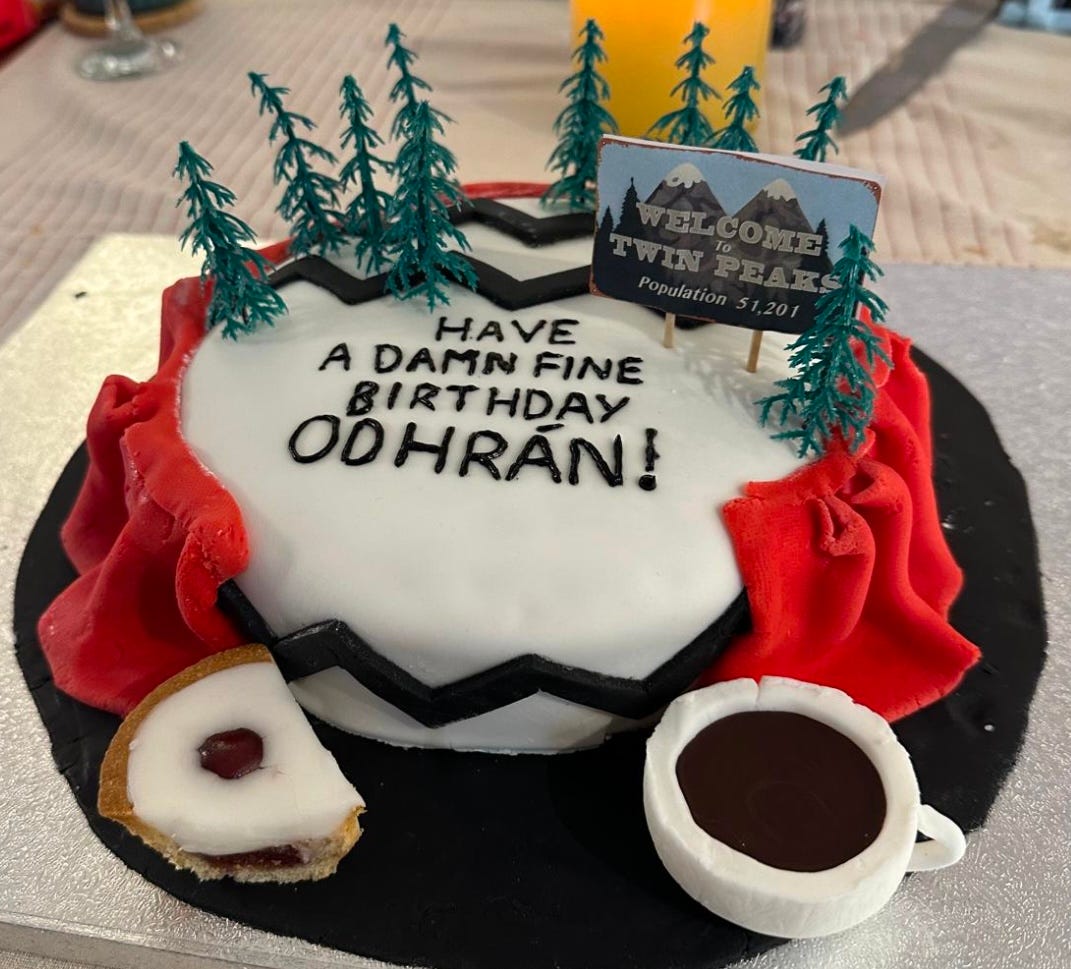
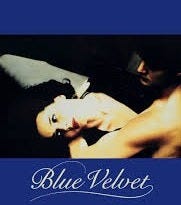
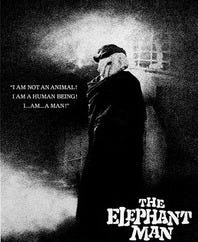
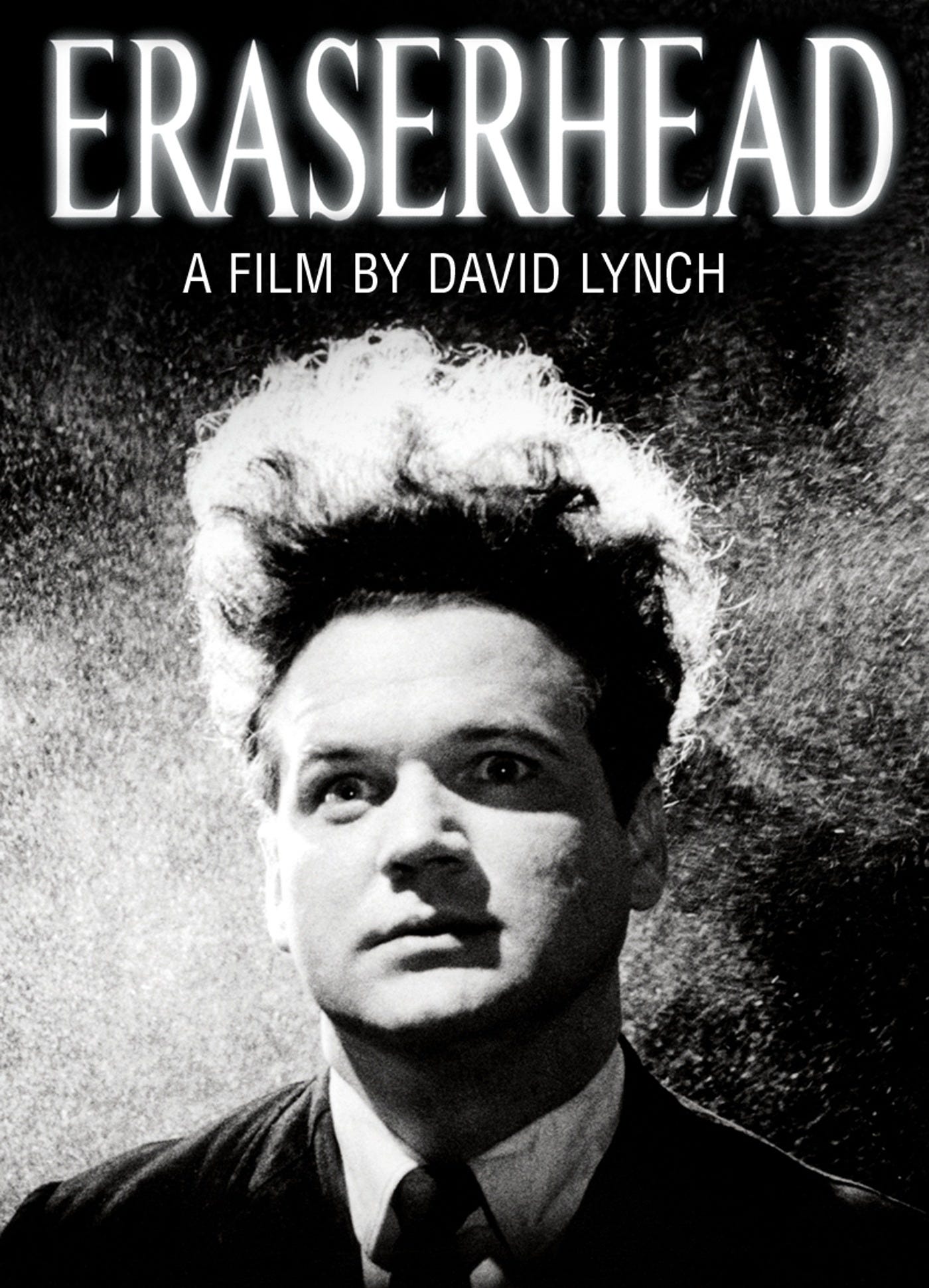
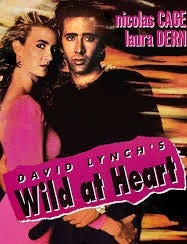
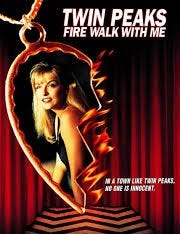
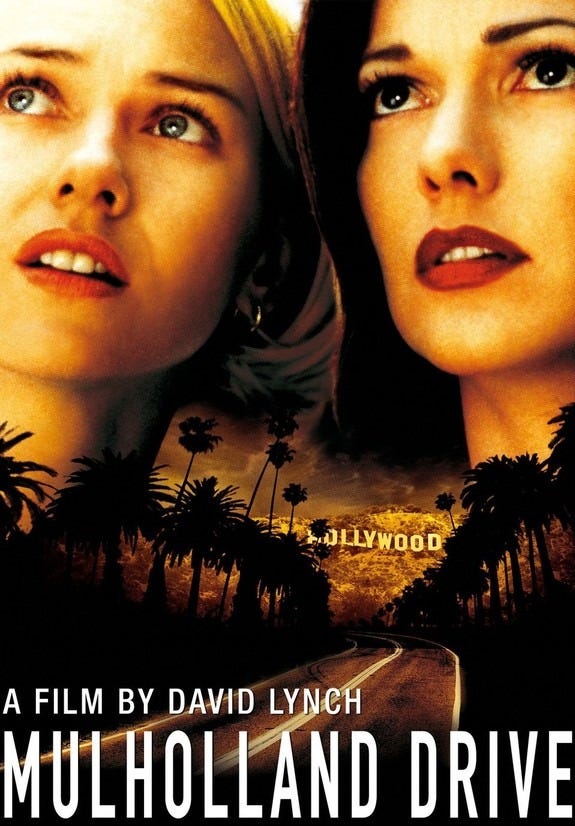
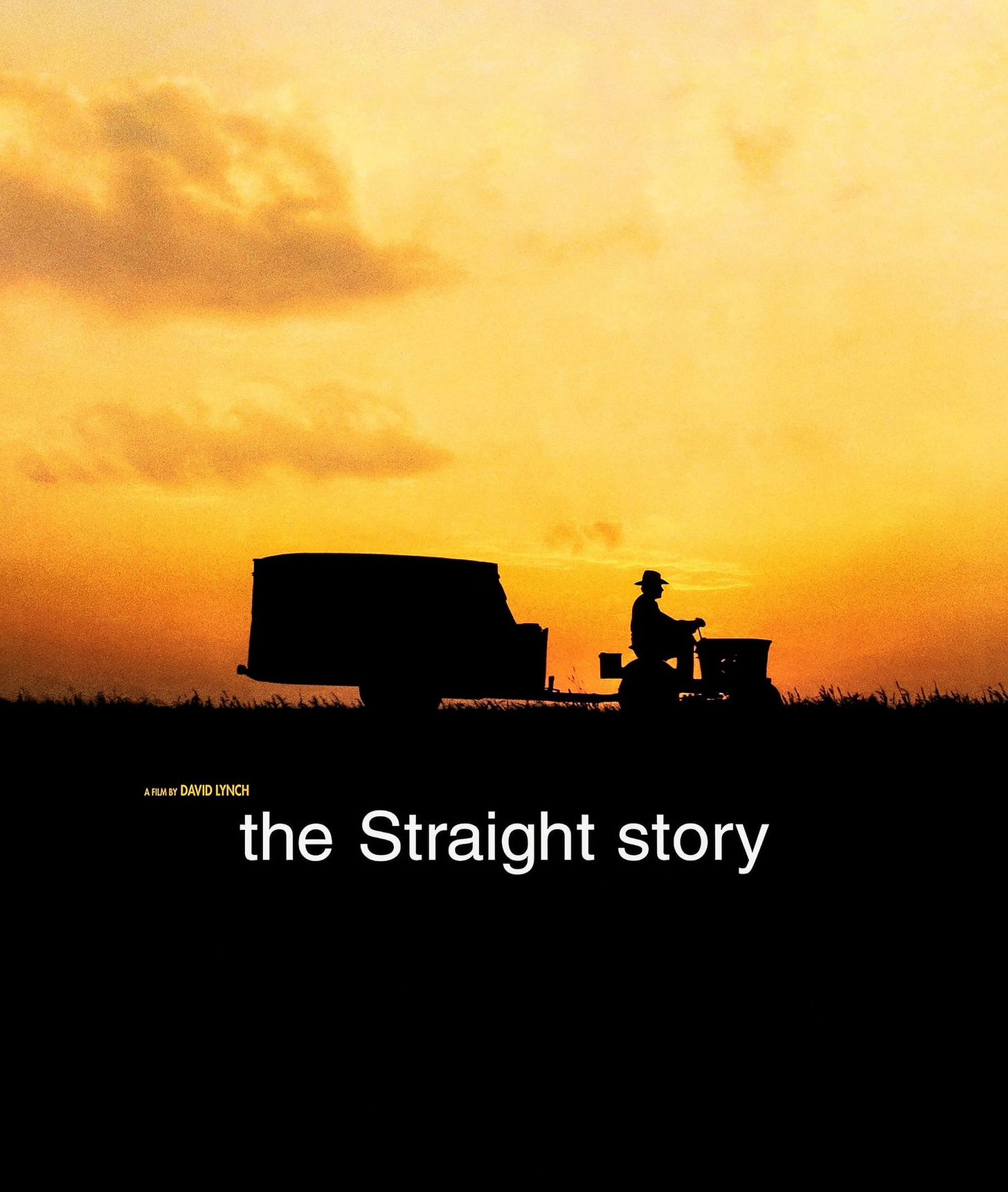
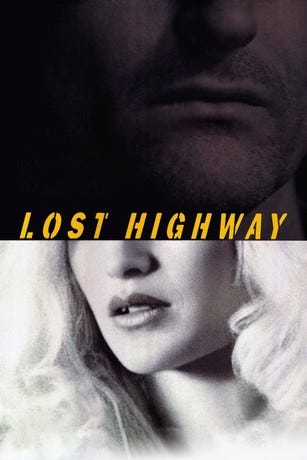
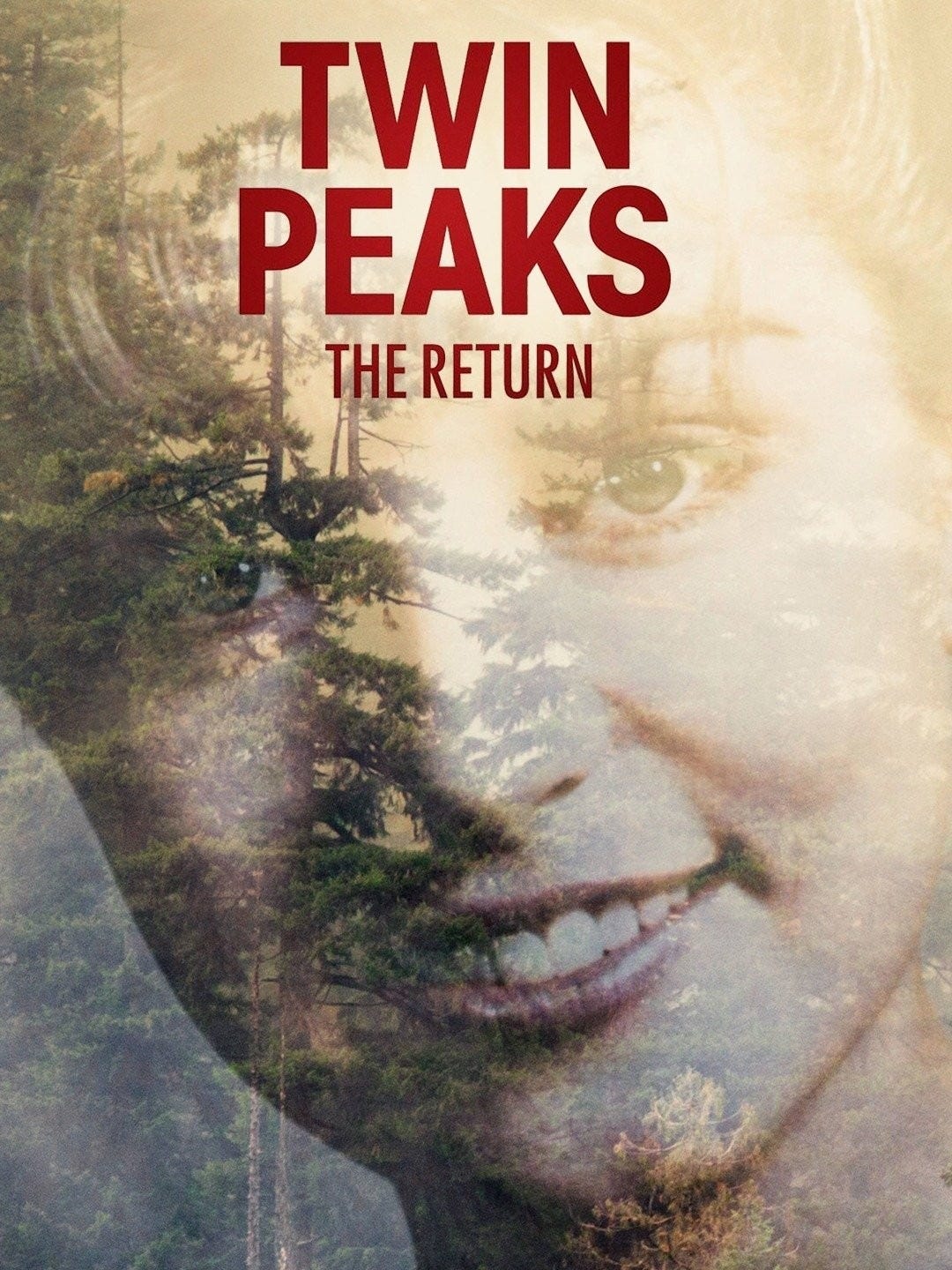
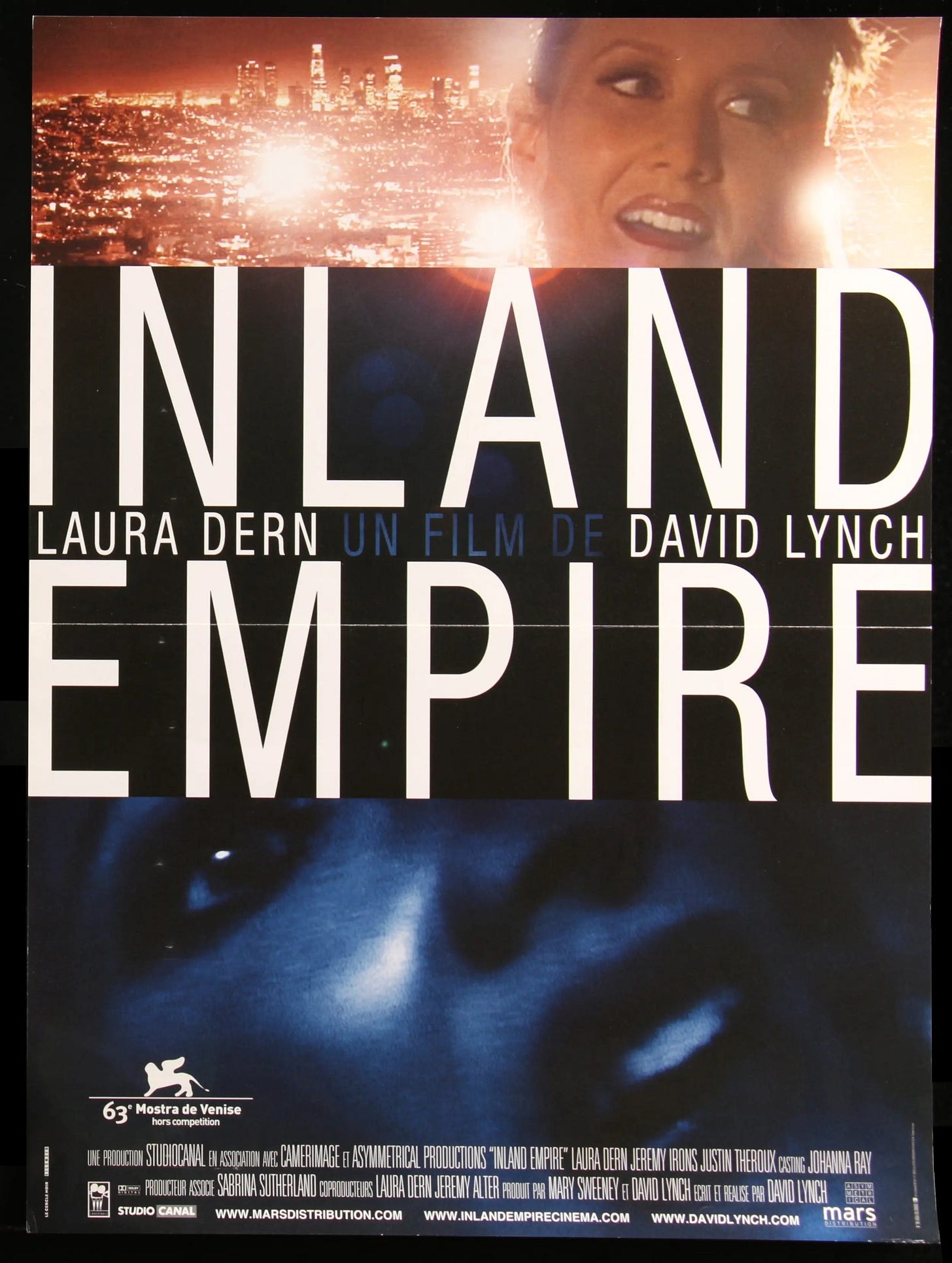

One for the soul, Odhran! I recommend listening to his audio book ‘ Room to dream’ if you haven’t already - it’s delightful
My own (brief) Lynch tribute if you're interested.
https://walrod.substack.com/p/david-lynch-1946-2025